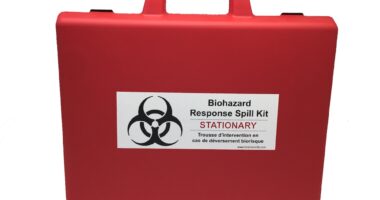Gum inflammation, often a subtle harbinger of dental distress, can manifest in various ways—swelling, redness, tenderness, and even bleeding. While occasional gum sensitivity might seem harmless, distinguishing between minor irritations and signs of something more serious is crucial.
Ignoring persistent inflammation can lead to more severe dental issues, such as periodontal disease or infections. With that said, how do you know when its time to consult a professional? Understanding the nuances of your oral health is essential, as the stakes can be higher than you think.
In this article, we’ll explore the telltale signs that your gum inflammation warrants medical attention and offer guidance on how to take proactive steps toward maintaining your dental well-being.
What is Gum Inflammation?

Gum inflammation, often referred to as gingivitis, is a common yet often overlooked dental issue characterized by the swelling, redness, and tenderness of the gums. This condition typically arises due to the buildup of plaque—a sticky film of bacteria—along the gum line, which, if left untreated, can evolve into more severe periodontal disease.
The initial signs of gum inflammation are often subtle; you might notice a bit of bleeding while brushing or flossing, but the implications can be far-reaching. Beyond mere discomfort, chronic gum inflammation has been linked to systemic health problems, including heart disease and diabetes.
Recognizing the signs early can be crucial, as timely intervention not only alleviates discomfort but also protects your overall health. What may begin as a minor annoyance can escalate into something far more serious, making it essential to stay vigilant.
Signs and Symptoms of Gum Inflammation
Gum inflammation, often a precursor to more serious dental issues, manifests through a variety of signs and symptoms that warrant close attention. Initially, you might notice a subtle change—a pinkish tinge along the gum line or slight swelling that seems innocuous at first.
However, as the condition progresses, the inflammation can escalate into more alarming symptoms: persistent redness, tenderness, and even bleeding during brushing or flossing. Some individuals may experience a chronic bad taste in their mouth or unpleasant breath that lingers despite routine oral hygiene. In certain cases, the gums may pull away from the teeth, creating pockets that can harbor bacteria.
If left unchecked, this concerning journey from mild irritation to more severe periodontal disease can have implications far beyond oral health, making it imperative to seek professional evaluation if these signs persist or worsen.
Evaluating Your Condition

Evaluating your gum inflammation involves a careful assessment of both the symptoms you’re experiencing and the duration of these issues. Begin by noting the color and texture of your gums; healthy gums should be a vibrant pink and firm, while inflamed gums may appear red, swollen, or bleeding.
Consider whether you’ve experienced persistent pain or sensitivity when eating or brushing, as these can be warning signs. Pay attention to the presence of any unusual bad breath or a lingering metallic taste, which could indicate an underlying infection.
Additionally, reflect on lifestyle factors—stress levels, smoking habits, and oral hygiene practices—that may be exacerbating your condition. If inflammation has lingered for more than a few days, despite home care efforts like improved brushing and rinsing, it’s crucial to consult a dental professional.
Remember, early intervention can prevent more severe complications down the line, so trust your instincts and don’t hesitate to seek help if something feels off.
Conclusion

In conclusion, understanding the signs of gum inflammation is crucial for maintaining your oral health and preventing further complications. If you experience persistent swelling, pain, or bleeding, its important to seek medical attention as these could be indications of a more serious condition.
Regular dental check-ups and good oral hygiene practices can help you stay ahead of potential issues. Remember, products like Dentavim can also aid in managing gum health, but they should not replace professional advice. By being proactive and attentive to your gums, you can ensure a healthier smile and overall well-being.




